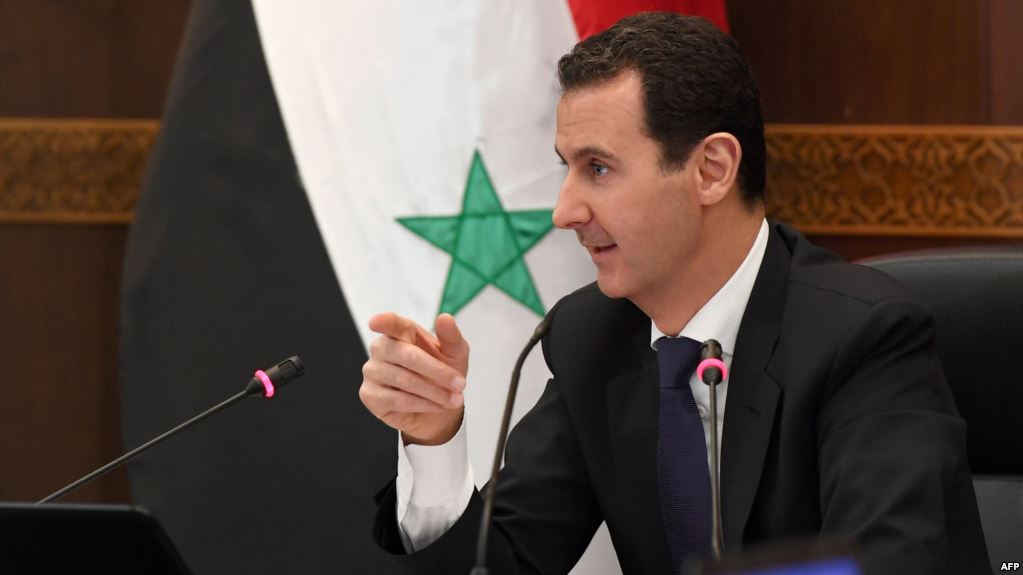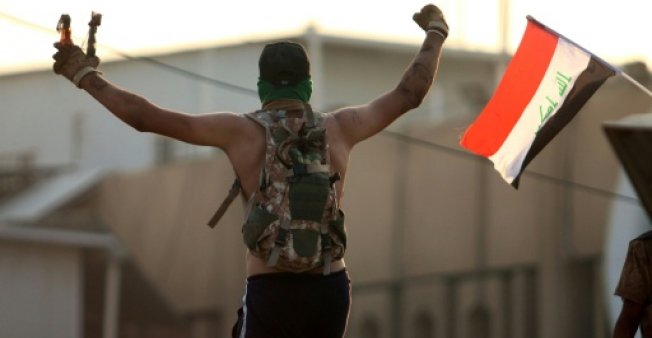After 30,000 citizens of the city of Basra in southeastern Iraq ended up in hospital after drinking polluted water, protesters took to the streets to demand more jobs, safe drinking water, and better public services. They torched nearly every government building in the city, including the Iranian embassy. This fresh wave of protest has provided the United States with an opportunity to re-enter Iraq’s political spectrum.
Historically, the U.S. preferred military solutions to Iraq’s problems. This helped in the past, but the lack of the U.S. response to Iraq’s changing political dynamics has created a vacuum that was filled by regional and international players like ISIS and Iran.
US-Iraq Relations
In 1980, when Iraq launched a full-scale war against Iran’s newly formed revolutionary government, the U.S. provided Iraq with logistical support. Interestingly, Iraq was on the U.S. list of State Sponsors of Terrorism but got removed in 1982, allowing American companies to sell arms to the country. The U.S. continued to support Iraq until the end of Iran-Iraq war in 1988.
Two years later, a powerful Iraq invaded Kuwait, leading to the First Gulf War. At the time, Iraq had stockpiles of American weapons which they had bought during the Iran-Iraq war. Nearly six months after Iraq occupied Kuwait, coalition forces under the U.S. command launched “Operation Desert Storm” to expel Iraqi troops from Kuwait. After the liberation of Kuwait, coalition forces advanced into the Iraqi territory, marking a turning point in the ties between the two countries.
In 2003, thirteen years later, America once again entered Iraq. Sunni Saddam Hussein had ruled the country, a predominantly Shia state, with an iron fist for 24 years. The U.S. shuttered the dictator’s fist in 2003. The war devastated the infrastructure and pushed the country into civil war.
Resident scholar of Brooking Institution Kenneth Pollack noted back in 2006, almost three-and-a-half years into the war, that there was an immense need for infrastructure development in Iraq. People were growing frustrated by the destruction of the war and their dire need for reconstruction work. George W. Bush’s administration did not respond to this problem.
In 2011, a civil war broke out in neighboring Syria that compromised Iraq’s internal security. Al-Qaeda’s Iraq branch, led by Abu Musab Al-Zarqawi, who was killed in a U.S. attack in 2006, rebranded as ISIS in 2013 and developed strongholds in Iraq’s and Syria’s border areas.
In early 2014, ISIS dramatically captured large areas of Iraq and Syria and ousted the national armies of both countries. If the U.S. had defeated this savage and bloodthirsty organizations back then, they would have had the tremendous opportunity to jump into Iraq’s political landscape.
However, the U.S. missed the opportunity. Its focus remained on the overthrowing of Syrian dictator Bashar al-Assad after his regime allegedly used chemical weapons against Syrian civilians.


Meanwhile, Russia and Iran swiftly acted and capitalized on the situation in Iraq. Russia not only saved Assad’s regime by forming a coalition but also forcefully crushed ISIS in an attempt to enter the Middle East as an important player. Iran also advantaged from Iraq’s situation by tasking Quds Force Commander General Qasem Suleimani to form Shia militias to fight against ISIS in Iraq. These militias served as proxies for Iran.
Ailing Economy
Fast forward to the present situation, the U.S. has imposed economic sanctions on Iran. Iraq imports food, agricultural products, and other appliances from Iran, with an annual trade of around $8 billion. Cheap goods made in Iran have paralyzed Iraq’s market for decades.
The water crisis in Iraq has further increased the country’s dependency on Iranian goods. According to Al Jazeera, upstream dams built by Turkey on the Euphrates and Tigres rivers give Iran an opportunity to further increase its trade share in Iraq. Iraq’s agriculture heavily depends on water from these two rivers, and with the dams, Iraq now becomes even more dependent on Iranian agricultural products.
Iraq’s current economic situation has forced Prime Minister Haider al-Abadi to think about joining the group of anti-dollar countries that plans to trade with Iran without U.S. dollars. Russia and China are considered to be frontrunners of this so-called anti-dollar bloc. These two economic giants are inviting countries to trade with a mutually established currency to break the dollar’s hegemony over the international financial system. If such a thing happens, U.S. sanctions against Iran would lose their significance since it would allow companies to trade with Iran in the alternative currency.
Iraq’s Changing Political Landscape
Iraq’s recent elections, held in May, have changed the country’s political situation. Moqtada al-Sadr‘s Saeroun alliance has bagged most seats (54) in Iraq’s 329-seat parliament. Al-Sadr is considered anti-U.S. and anti-Iran. He has launched major military offensives against the U.S. in Iraq and criticized Iran for using Iraqi territory for its own interest. Hadi al-Amiri’s pro-Iran Fateh alliance came in second and secured 48 seats in the parliament.
Al-Sadr and al-Amiri formed a coalition, raising their seat count to 102, 64 short to achieve a majority to form a government. Al-Sadr also engaged in negotiations with the pro-American Nasr coalition, led by current Prime Minister al-Abadi, but amid the violent protests in Basra, al-Sadr and al-Amiri called on the prime minister to step down. If Al-Sadr and al-Amiri succeed in forming a government, U.S. influence in Iraq might decrease.
America could not afford to lose again. An unstable Iraq threatens the U.S.’ economic and political interests in the Middle East. Donald J. Trump’s administration needs to seriously revise their policy towards Iraq and the recent elections and the wave of protests have opened a window of opportunity for this.
The turnout in Iraq’s election steeply declined with 15 percent. This demonstrates that the nation is losing trust in the country’s corrupt political system. Not a single coalition was able to win more than 56 seats, indicating deep political. People are increasingly frustrated with the government. They need basic life necessities.
The time has come for the U.S. to jump in and invest in Iraq by strengthening local governance, undertake development work, and raise awareness through a network of NGOs.

